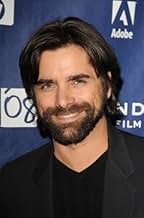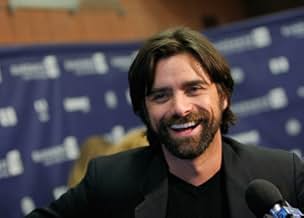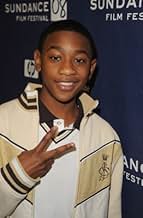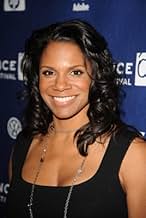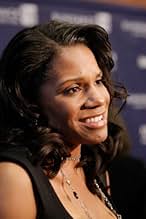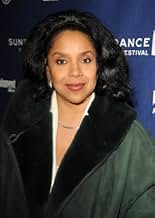IMDb RATING
6.5/10
2.2K
YOUR RATING
An African-American family struggles with poverty, racism, and inner conflict as they strive for a better way of life. Based on the play by Lorraine Hansberry.An African-American family struggles with poverty, racism, and inner conflict as they strive for a better way of life. Based on the play by Lorraine Hansberry.An African-American family struggles with poverty, racism, and inner conflict as they strive for a better way of life. Based on the play by Lorraine Hansberry.
- Director
- Writers
- Stars
- Nominated for 3 Primetime Emmys
- 9 wins & 24 nominations total
Sean 'Diddy' Combs
- Walter Lee Younger
- (as Sean Combs)
Ron Cephas Jones
- Willy Harris
- (as Ron C. Jones)
- Director
- Writers
- All cast & crew
- Production, box office & more at IMDbPro
Featured reviews
I can honestly say I enjoyed this movie, I enjoyed the 1984(?) version with Danny Glover and was hoping to catch a treat with this film. A treat a received greatly.
Yes this film had many flaws, as does every movie. So I shall give the flaws then the bright side of the film Flaws: I was bored the first half of the film, it moved in a little slow, and Sean Combs performance didn't help. I felt that the cast excluding Sean Combs was superb and was full of real emotion and strength. Combs was trying to hard to act, when he should have let it flow and have a real feeling for the character and not just try to over act. He does have his moments though, but those moment are quickly cut back to his not letting it flow and not having a true feeling for the character.
Bright Side: The film was a delight. Raw emotion and strength from the leading ladies and the leading men(excluding Sean Combs). Phylicia Rashad was full of emotion and pride, that you instantly love her and feel for her and the pain she goes through. Audra McDonald is superb and excellent actress who is going somewhere, you also feel for her and go through struggles and emotion. Beneatha Younger (Sanaa Lathan) is spunky, yet naive. You love her and many of my young generation can relate to her.
Overall: The acting is brilliant coming from the cast, again excluding Sean Combs yet he does have moments. Direction is great, and the feel and emotion and strength is just excellent 8/10 -Izzy
Yes this film had many flaws, as does every movie. So I shall give the flaws then the bright side of the film Flaws: I was bored the first half of the film, it moved in a little slow, and Sean Combs performance didn't help. I felt that the cast excluding Sean Combs was superb and was full of real emotion and strength. Combs was trying to hard to act, when he should have let it flow and have a real feeling for the character and not just try to over act. He does have his moments though, but those moment are quickly cut back to his not letting it flow and not having a true feeling for the character.
Bright Side: The film was a delight. Raw emotion and strength from the leading ladies and the leading men(excluding Sean Combs). Phylicia Rashad was full of emotion and pride, that you instantly love her and feel for her and the pain she goes through. Audra McDonald is superb and excellent actress who is going somewhere, you also feel for her and go through struggles and emotion. Beneatha Younger (Sanaa Lathan) is spunky, yet naive. You love her and many of my young generation can relate to her.
Overall: The acting is brilliant coming from the cast, again excluding Sean Combs yet he does have moments. Direction is great, and the feel and emotion and strength is just excellent 8/10 -Izzy
There is nothing wrong with remaking and recasting the Lorraine Hansberry masterwork; we shouldn't pay undue fealty to the original cast. I'm sure Olivier's, Jacobi's, and Branaugh's Hamlet would suffer in comparison to the original Burbage performance. Plays are meant to be inhabited by different people as the generations pass. Therefore, there is nothing wrong, in theory, to the making of this version.
This rendition is superior to the 1989 "American Playhouse" performance, which was poorly paced and largely overacted. The female parts are perfectly cast and performed. The same cannot be said, unfortunately, for the male parts.
P. Diddy, or Sean Combs, or whatever name he is going by these days, simply does not have the acting chops to bring out the complexities of the Walter Younger character. Where Sidney Poitier and, to a lesser extent, Danny Glover, were able to grasp hold of the anger and frustration of the man, Mr. Diddy twitches and frowns. He performs as if a lowered head and furrowed eyebrows are the makings of a great performance. I was reminded of Hayden Christianson taking the complex evil of Darth Vader and turning him into a naughty teenager. Combs plays Walter like a street punk.
Sean Patrick Thomas, as George Murchison, fares a little better. He does what he can with what is essentially a superficial and somewhat stereotyped character.
The greatest error is the miscasting of John Stamos as Lindner. He gives the character a harder, more outwardly racist edge than John Fiedler, who created the role. Stamos drips hatred and prejudice just a little too much -- it is easy to ultimately say no to him just to tick him off. Fiedler, working with Hansberry, had a much better grip on the role -- not a man who is outwardly racist, but as one who is sadly misinformed, ignorant (meaning, simply, not understanding), and afraid. Stamos tries to chew up just a little too much scenery.
David Oyelowo, as Joseph Asagai, is the most well cast male in the film, hitting every note required by the character.
The female cast fares far better. Phylicia Rashad recreates and improves upon the role of Lena Younger, breaking the "Mammy"-isms of the earlier performers. Audra McDonald certainly will not usurp Ruby Dee as the definitive Ruth Younger, but does an excellent job in a part that requires an extreme range of emotion.
The greatest revelation in the film by far is Sanaa Lathan as Beneatha. Beneatha is a key character in the play and is relatively ignored in the original, and not particularly well played in the 1989 version. Playing a character substantially younger than she is in real live, Lathan is able to exhibit the hope, anger, childish "know-it-all" attitude and sadness of a young woman in her position. Unfortunately, the screenwriters chose to omit her lovely, sad second-act monologue about her desire to become a doctor; this section was excised in the original film and restored in the American Playhouse version and should have been present here.
Overall, this is a worthwhile film, but imperfect in many ways.
This rendition is superior to the 1989 "American Playhouse" performance, which was poorly paced and largely overacted. The female parts are perfectly cast and performed. The same cannot be said, unfortunately, for the male parts.
P. Diddy, or Sean Combs, or whatever name he is going by these days, simply does not have the acting chops to bring out the complexities of the Walter Younger character. Where Sidney Poitier and, to a lesser extent, Danny Glover, were able to grasp hold of the anger and frustration of the man, Mr. Diddy twitches and frowns. He performs as if a lowered head and furrowed eyebrows are the makings of a great performance. I was reminded of Hayden Christianson taking the complex evil of Darth Vader and turning him into a naughty teenager. Combs plays Walter like a street punk.
Sean Patrick Thomas, as George Murchison, fares a little better. He does what he can with what is essentially a superficial and somewhat stereotyped character.
The greatest error is the miscasting of John Stamos as Lindner. He gives the character a harder, more outwardly racist edge than John Fiedler, who created the role. Stamos drips hatred and prejudice just a little too much -- it is easy to ultimately say no to him just to tick him off. Fiedler, working with Hansberry, had a much better grip on the role -- not a man who is outwardly racist, but as one who is sadly misinformed, ignorant (meaning, simply, not understanding), and afraid. Stamos tries to chew up just a little too much scenery.
David Oyelowo, as Joseph Asagai, is the most well cast male in the film, hitting every note required by the character.
The female cast fares far better. Phylicia Rashad recreates and improves upon the role of Lena Younger, breaking the "Mammy"-isms of the earlier performers. Audra McDonald certainly will not usurp Ruby Dee as the definitive Ruth Younger, but does an excellent job in a part that requires an extreme range of emotion.
The greatest revelation in the film by far is Sanaa Lathan as Beneatha. Beneatha is a key character in the play and is relatively ignored in the original, and not particularly well played in the 1989 version. Playing a character substantially younger than she is in real live, Lathan is able to exhibit the hope, anger, childish "know-it-all" attitude and sadness of a young woman in her position. Unfortunately, the screenwriters chose to omit her lovely, sad second-act monologue about her desire to become a doctor; this section was excised in the original film and restored in the American Playhouse version and should have been present here.
Overall, this is a worthwhile film, but imperfect in many ways.
This film start slowly and at times is a little dull but this is mainly due to the lacklustre performance of Mr Combes, P Diddy, Puffy whatever. Every other performance is superb and this is what carries the film, however as others have already commented, what could have been an excellent film, with someone else in the lead role, becomes just a good film and I would still recommend it for anyone to watch. Combes performance is just not believable, sure he is moody and unlikeable but you get the feeling that he struggles to move away from his real persona and slips too easily back into being a 90s rapper rather than a black man struggling in 1950s America. It might be worth noting that if you hate the modern trend for films to be littered with foul language, sex and violence then you will love this film because it stays true to the original play in this regard and has resisted the mistake many remakes have made of modernising it and alienating the family audience. So for many reasons I would recommend this film and just think it is a shame another, much better lead actor was not chosen for the main male role.
I just seen the 1961 version before watching this TV movie... frankly speaking this version put me to sleep Puff daddy ain't Sidney Poitier all the cast just don't click as well as the original.
In 1959 Chicago, the Younger family lives in a small apartment with cockroaches and other problems, although they have done their best to make it look nice.
Walter works as a chauffeur for a white family that doesn't seem to acknowledge him as a human being. He is tired of "Yassir" and "Nossir" and wants to start his own business with friends Bobo and Willy.
Walter's mother Lena works as a maid and is loved by the little girl she cares for, but she can quit that job now since she is getting a $10,000 life insurance check after the death of her husband.
Walter's wife Ruth does people's laundry and raises their son Travis. Walter's sister Beneatha also lives with them, sharing a room with her mother. Travis sleeps on the couch in the living room.
What is the best way to spend the insurance money? Beneatha could use it to go to medical school. She is in college now, and she has two potential romantic partners--George, who comes from a rich family and is about as black as Carlton Banks, and language professor Joseph Asagai, who wants to teach Beneatha about Africa.
But Walter wants to open a liquor store. Imagine how that will go over with his devout Christian mother.
Lena sees a great opportunity to move into a better neighborhood. But the people next door to the house she finds are all white and don't want blacks moving in.
For the most part, this movie came across as the quality production ABC told us it was. The characters are strong and have values, but the question is how much will circumstances cause them to question those values.
Phylicia Rashad will surely be mentioned at Emmy time. She was outstanding, showing so much emotion when the time came to do it. It's the first time I ever saw her play a truly black character. I had to look closely to make sure it was actually her. Up until now, she has played attractive, young-looking women who could have been any ethnic group but happened to be dark-skinned.
Audra McDonald also did a very good job, and she was quite good-looking even here, with such a nice smile.
David Oyelowo showed so much passion for his heritage and for teaching the woman he cared about to have the same passion.
Not to take anything away from her performance, but Sanaa Lathan just got on my nerves. Perhaps that means she was doing everything right.
Sean Patrick Thomas did a good job showing another side of black culture; in the 1950s most blacks did not have money, and despite having dark skin, he seemed out of touch with the problems of his race, quite content with life.
Sean Combs didn't quite give the impression of quality that ABC had led me to expect. He was good, but almost always so bitter. I can't blame the writing, because Sidney Poitier played the role, and we all know he would have done a magnificent job with it. But Combs was good enough.
Bill Nunn had one fine scene as Bobo. He was in several other scenes, but he lived up to the promise of this film.
I liked John Stamos a lot on "Full House" (in fact, he was the reason I started watching the show in the first place). I liked him here. But surely not everyone will. He seemed out of place in this type of production. It was like watching Uncle Jesse facing Aunt Becky and trying to weasel out of having behaved in a racist way, mainly by explaining it was everyone else who wanted him to do it. But he was not threatening at all.
This is certainly worth seeing.
Walter works as a chauffeur for a white family that doesn't seem to acknowledge him as a human being. He is tired of "Yassir" and "Nossir" and wants to start his own business with friends Bobo and Willy.
Walter's mother Lena works as a maid and is loved by the little girl she cares for, but she can quit that job now since she is getting a $10,000 life insurance check after the death of her husband.
Walter's wife Ruth does people's laundry and raises their son Travis. Walter's sister Beneatha also lives with them, sharing a room with her mother. Travis sleeps on the couch in the living room.
What is the best way to spend the insurance money? Beneatha could use it to go to medical school. She is in college now, and she has two potential romantic partners--George, who comes from a rich family and is about as black as Carlton Banks, and language professor Joseph Asagai, who wants to teach Beneatha about Africa.
But Walter wants to open a liquor store. Imagine how that will go over with his devout Christian mother.
Lena sees a great opportunity to move into a better neighborhood. But the people next door to the house she finds are all white and don't want blacks moving in.
For the most part, this movie came across as the quality production ABC told us it was. The characters are strong and have values, but the question is how much will circumstances cause them to question those values.
Phylicia Rashad will surely be mentioned at Emmy time. She was outstanding, showing so much emotion when the time came to do it. It's the first time I ever saw her play a truly black character. I had to look closely to make sure it was actually her. Up until now, she has played attractive, young-looking women who could have been any ethnic group but happened to be dark-skinned.
Audra McDonald also did a very good job, and she was quite good-looking even here, with such a nice smile.
David Oyelowo showed so much passion for his heritage and for teaching the woman he cared about to have the same passion.
Not to take anything away from her performance, but Sanaa Lathan just got on my nerves. Perhaps that means she was doing everything right.
Sean Patrick Thomas did a good job showing another side of black culture; in the 1950s most blacks did not have money, and despite having dark skin, he seemed out of touch with the problems of his race, quite content with life.
Sean Combs didn't quite give the impression of quality that ABC had led me to expect. He was good, but almost always so bitter. I can't blame the writing, because Sidney Poitier played the role, and we all know he would have done a magnificent job with it. But Combs was good enough.
Bill Nunn had one fine scene as Bobo. He was in several other scenes, but he lived up to the promise of this film.
I liked John Stamos a lot on "Full House" (in fact, he was the reason I started watching the show in the first place). I liked him here. But surely not everyone will. He seemed out of place in this type of production. It was like watching Uncle Jesse facing Aunt Becky and trying to weasel out of having behaved in a racist way, mainly by explaining it was everyone else who wanted him to do it. But he was not threatening at all.
This is certainly worth seeing.
Did you know
- TriviaPhylicia Rashad's sister, Debbie Allen, played "Beneatha Younger" in the Broadway musical, "Raisin".
- GoofsWhen they are packing up the apartment, Momma is working on putting sticks around a small plant to protect it to wrap it. The number and location of the sticks are not in sync with the timing.
- ConnectionsFeatured in The 60th Primetime Emmy Awards (2008)
Details
- Release date
- Country of origin
- Language
- Also known as
- Una sombra bajo el sol
- Filming locations
- Production companies
- See more company credits at IMDbPro
Contribute to this page
Suggest an edit or add missing content


